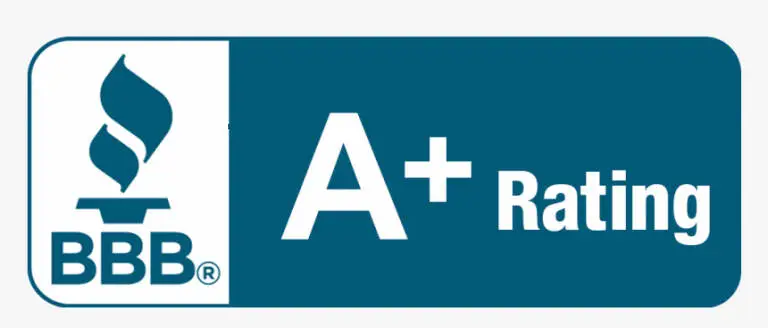Blog
Property Management Tips for Your Nashville Rental House
Deepshikha

Many aspects of Nashville contribute to its popularity, from the vibrant music scene to iconic buildings and scenic natural beauty.
A lesser-known reason for Nashville’s prominence is its rapid growth, increasing the demand for rental properties. Innovative investors are buying and renting houses out to meet this surging demand.
While Nashville rental houses offer a lucrative way to build wealth and offer much-needed housing for residents and visitors, managing a rental property can be daunting.
Being a property owner is not all about sitting back and waiting for rent checks; you must comply with building codes, find tenants, handle maintenance requests, and settle disputes.
Here are Nashville rental property management tips for making your work easier and ensuring ROI.
Know Landlord-Tenant Laws
Tennessee property management is a highly regulated sector with numerous national, state, and local laws and regulations to comply with. Certain state laws govern landlord and tenant relations and safeguard both parties’ interests.
For instance, a tenant should pay rent timely and adhere to lease provisions, while the landlord should provide a safe, habitable, and discrimination-free environment.
Consequently, Nashville property managers should familiarize themselves with these laws to ensure compliance and avoid potential legal problems. Common liability issues for Nashville landlords include pet issues, intentional tenant damage, habitability concerns, and accidental tenant injuries.
Working with a real estate lawyer can help you comply with relevant laws and file taxes, something many rental owners struggle with. Purchasing landlord insurance is handy to protect against financial loss should the unexpected happen.
Have a Thorough Tenant Screening Process
Successful landlords and Nashville rental companies have a comprehensive and consistent screening process to minimize tenant issues such as nonpayment, property damage, and eviction.
They assess a potential tenant’s income, credit report, eviction history, and background history to determine if they fit the rentals well. With the costs of evictions increasing daily –currently, at $3,500 per unit, landlords have every reason to screen tenants.
A good tenant screening process saves you time, headaches, and money. It can be the difference between a good tenant who follows set rules and lives harmoniously with neighbors and a troublesome tenant who damages your property and compromises the safety of others.
Draft a Smart Lease

Every responsible landlord should have a lease, a legal document between a landlord and tenant outlining the rental terms. The lease should include vital terms such as the name of tenants and occupants, time of the tenancy, rental price, and due date, security deposit and fees, right-to-entry terms, limits of occupancy, and repair and maintenance policies.
Besides having a lease, explain lease terms to potential tenants to ensure they understand their rights and responsibilities. Invite tenants to ask questions if any clauses are unclear or they have an issue the lease does not address. If the tenant has a pet, let them understand the pet policy to avoid liabilities in the future.
Create a Tenant Care Team
High turnover rates are every landlord’s worst nightmare. While tenants move out for many reasons, lack of property maintenance and ignored repair needs are among the most common.
One of the best property management tips is to have a tenant care team handle tenant problems promptly. The team includes plumbers, appliance repair professionals, HVAC technicians, roofing professionals, and painters.
In addition to the team, the landlord should be available and reachable. Effective communication is crucial in a rental business, establishing trust and increasing tenant satisfaction. If you cannot handle tenant concerns or emergencies, have an assistant or Nashville property management team step in as needed.
Invest in Upgrades Wisely
Every property owner knows how to make their rental homes appealing to tenants. While there’re numerous things an owner can do to make their homes a top choice for tenants, avoid going overboard.
If you own a vacation rental, toiletries, towels, and streaming devices can greatly delight tenants. Similarly, stocking up on travel-sized bathroom essentials like shampoo, toothpaste, body wash, and shaving cream can save the day for a forgetful traveler.
In the current digital age, a strong WiFi connection is desirable, especially among tourists who need to keep in touch with loved ones at home.
Perform Proactive Maintenance
Many landlords make the mistake of performing reactive maintenance, waiting until a tenant raises a problem to fix it. While such an approach is cost-effective, it is costly in the long term and compromises a property’s value.
Property management Nashville, TN, involves preserving a rental home’s value. Scheduling proactive maintenance is crucial to protecting your investment and boosting its value.
Hire a professional to inspect your rental houses twice annually to identify any issues and handle them before they wreak havoc on your investment. It also documents damage and identifies lease violations.
Go Digital
In the current digital age, tenants desire a convenient, hassle-free tenant experience. With millennials using digital platforms to pay 61% of their bills, online rent payment options can be a welcome addition. This way, the tenants can pay rent at their convenience and even set reminders to do so timely.
Also, consider ditching the back-and-forth emailing with tenants, which is frustrating and time-consuming for property management software. The software has many features supporting communication, accounting, maintenance management, and documentation.
The software allows you to communicate with tenants in the portal and manage maintenance requests. It also helps with accounting and recordkeeping, which is invaluable for landlords and property managers. Some software supports online rent collection for streamlined rental operations.
Consider Hiring a Property Manager
If you don’t have the time and willingness to manage your rental properties in Nashville, TN, consider hiring a property manager. The manager will oversee all the property operations, from rent collection to undertaking repairs, searching for tenants, and managing leases.
As a result, you save time, effort, and money and can concentrate on other essential things, such as investments.
Hiring Nashville property management services is worthwhile if you live far from the property or overseas. You get peace of mind because professionals cater to your rental houses, and you don’t have to get involved in tenant affairs.
Also, premier property management services save you money by finding the right tenants, maximizing rental income, and lowering maintenance bills.
Conclusion
Keeping a rental house in tip-top shape requires time and effort, and property management companies in Nashville can take care of that. Working with a reliable company pays off with higher income, low vacancy rates, increased value, and more significant ROI.
Whether you are a first-time or seasoned landlord, the tips above will help you increase the profitability of your rental property in the music city.












